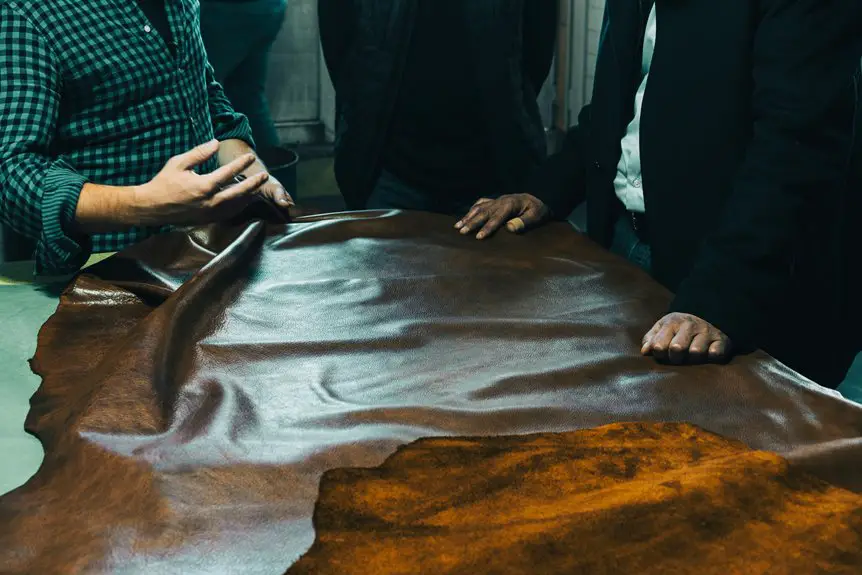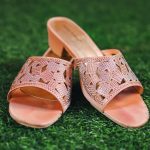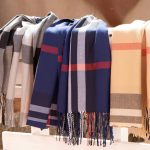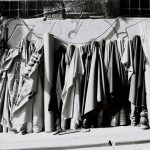If you’re sourcing knit fabric in Bangladesh, you’ll find manufacturers offering competitive prices without sacrificing quality. They use modern machinery and skilled labor to produce a variety of fabrics like single jersey, rib knit, and fleece, many with global certifications such as OEKO-TEX and GOTS. Sustainable and ethical practices are common, helping you meet eco-friendly standards. Understanding pricing factors and how to assess quality will strengthen your sourcing strategy—explore further to discover key tips and leading suppliers.
Table of Contents
Key Takeaways
- Bangladesh offers diverse knit fabrics like single jersey, rib knit, interlock, and fleece, catering to various apparel needs with competitive pricing.
- Leading manufacturers include TexStyle Ltd., KnitPro Fabrics, BanglaKnit Textiles, and EcoFab Bangladesh, known for quality and sustainable practices.
- Quality certifications such as ISO 9001, OEKO-TEX, WRAP, and GOTS ensure safety, ethical production, and international compliance.
- Effective sourcing requires clear communication, thorough sample assessment, and factory visits to ensure quality and timely delivery.
- Building long-term partnerships with reliable suppliers fosters innovation, consistent quality, and successful collaboration in sourcing knit fabrics.
Overview of Bangladesh’s Knit Fabric Industry
Although Bangladesh is widely known for its woven textiles, its knit fabric industry has rapidly gained momentum, becoming a key player in the global market.
Bangladesh’s knit fabric sector is swiftly emerging as a major force in the global textile market.
As you explore sourcing options, you’ll find that Bangladesh offers competitive pricing without compromising quality. The country’s knit fabric manufacturers have invested heavily in modern machinery and technology, allowing them to produce fabrics that meet international standards.
You’ll also appreciate their ability to handle large-volume orders efficiently, thanks to a skilled workforce familiar with global compliance requirements. Environmental sustainability is increasingly prioritized, too, with many factories adopting eco-friendly practices.
When you consider lead times, Bangladesh’s proximity to major shipping routes helps guarantee timely delivery. Overall, you can rely on Bangladesh’s knit fabric industry to provide reliable, high-quality materials tailored to your business needs.
Key Types of Knit Fabrics Produced in Bangladesh
When you explore Bangladesh’s knit fabric offerings, you’ll find a diverse range tailored to various applications. Whether you’re sourcing for casual wear, sportswear, or fashion pieces, Bangladeshi manufacturers produce fabrics that suit your needs. The most common types include single jersey, rib knit, interlock, and fleece, each offering unique textures and stretch properties. These fabrics cater to comfort, durability, and style, ensuring your products stand out.
| Fabric Type | Characteristics |
|---|---|
| Single Jersey | Lightweight, soft, breathable |
| Rib Knit | Stretchy, textured, form-fitting |
| Interlock | Thick, smooth, double-knit |
| Fleece | Warm, soft, brushed surface |
Choosing the right fabric helps you achieve the quality and feel your customers expect.
Leading Knit Fabric Manufacturers and Their Capabilities
You’ll find several top knit fabric manufacturers in Bangladesh, each with unique strengths and production capacities.
Comparing their capabilities helps you choose the right partner for your specific needs.
Let’s take a closer look at what sets these leaders apart.
Top Manufacturers Overview
Several top knit fabric manufacturers in Bangladesh have set the standard for quality and innovation in the industry. When sourcing, you’ll want to take into account these leading companies known for reliability and advanced textile solutions.
Here’s what makes them stand out:
- TexStyle Ltd. – Renowned for sustainable practices and a diverse knit fabric portfolio.
- KnitPro Fabrics – Specializes in high-quality jersey and rib knits with consistent finishes.
- BanglaKnit Textiles – Offers cutting-edge technology for seamless and circular knits.
- EcoFab Bangladesh – Focuses on organic and eco-friendly knit fabrics with global certifications.
Choosing any of these manufacturers guarantees you get superior materials backed by expertise and a commitment to meeting your specific knit fabric needs.
Production Capabilities Comparison
Understanding the strengths of top knit fabric manufacturers helps you assess which production capabilities align best with your project requirements.
Leading manufacturers in Bangladesh offer diverse capabilities, from circular knitting and flat knitting to specialized jacquard and rib knitting. Some excel in producing fine gauge fabrics, perfect for lightweight apparel, while others focus on heavy-duty, durable knits suited for activewear.
You’ll find manufacturers equipped with advanced dyeing and finishing technologies, ensuring vibrant colors and soft textures. Additionally, many provide quick turnaround times and scalable production volumes, accommodating both small and large orders.
Quality Standards and Certifications to Look For
When choosing knit fabric manufacturers in Bangladesh, you should prioritize those who comply with recognized quality standards and hold relevant certifications.
These guarantee consistent product quality and adherence to safety and environmental regulations. Look for manufacturers certified in:
- ISO 9001 – Guarantees effective quality management systems.
- OEKO-TEX Standard 100 – Confirms fabric safety, free from harmful substances.
- WRAP (Worldwide Responsible Accredited Production) – Guarantees ethical manufacturing practices.
- GOTS (Global Organic Textile Standard) – Validates organic fiber processing and sustainability.
Pricing Factors and Cost Considerations
When choosing a knit fabric manufacturer in Bangladesh, you’ll want to contemplate how material quality affects pricing.
The cost can also change depending on your production volume, with larger orders often lowering the price per unit.
Don’t forget to factor in labor and logistics expenses, as they play a big role in your overall budget.
Material Quality Impact
Because material quality directly affects the durability and feel of knit fabrics, it plays an essential role in pricing decisions.
When you choose higher-quality fibers, you’re investing in longer-lasting and more comfortable products, which naturally come at a higher cost.
Here’s what you should consider about material quality impact:
- Fiber Type: Premium fibers like Pima cotton or bamboo increase costs but enhance softness and strength.
- Yarn Count: Finer yarns improve fabric texture but require more processing, raising prices.
- Fabric Weight: Heavier fabrics use more raw material, increasing production expenses.
- Finishing Treatments: Special finishes for durability or aesthetics add to the overall cost.
Production Volume Effects
Although production volume might seem like a straightforward factor, it greatly influences the pricing of knit fabrics. When you order larger quantities, manufacturers can spread fixed costs over more units, reducing the cost per yard. Smaller orders often come with higher prices due to less efficient use of machinery and setup times.
Here’s a quick look at how production volume impacts pricing:
| Order Quantity (yards) | Price per Yard (USD) | Cost Efficiency (%) |
|---|---|---|
| 500 | 5.00 | 70 |
| 1,000 | 4.50 | 80 |
| 5,000 | 3.75 | 90 |
| 10,000 | 3.25 | 95 |
| 20,000+ | 2.90 | 98 |
Choosing the right volume can optimize your budget without compromising quality.
Labor and Logistics Costs
Since labor and logistics form the backbone of knit fabric production in Bangladesh, you’ll find they greatly affect pricing. When sourcing, understanding these cost drivers helps you negotiate better and plan budgets accurately.
Here’s what to focus on:
- Labor Costs: Bangladesh offers competitive wages, but skilled workers may demand higher pay, impacting your fabric price.
- Overtime and Bonuses: Peak seasons increase labor expenses due to overtime, which you should factor in.
- Transportation: Efficient logistics reduce delays and costs, but remote factory locations might add to shipping expenses.
- Import/Export Duties: Customs fees and tariffs can fluctuate, influencing overall logistics costs.
How to Evaluate and Select a Reliable Manufacturer
When you’re looking to partner with a knit fabric manufacturer in Bangladesh, it’s vital to assess their reliability carefully.
Start by verifying their certifications and compliance with industry standards, ensuring they meet quality and safety requirements.
Check their production capacity to confirm they can handle your order volume without delays.
Review client testimonials and case studies to gauge their reputation and consistency.
Visit their facilities or request virtual tours to inspect machinery and workflow firsthand.
Evaluate their communication responsiveness and transparency, as these are essential for smooth collaboration.
Finally, request samples to assess fabric quality and confirm it aligns with your expectations.
Tips for Successful Sourcing and Building Partnerships
After evaluating and selecting a reliable knit fabric manufacturer, building a strong partnership becomes your next focus.
Successful sourcing hinges on clear communication and mutual trust. Here are four essential tips:
Clear communication and mutual trust are key to successful sourcing partnerships and project success.
- Establish open communication channels: Regular updates prevent misunderstandings and keep your projects on track.
- Set clear expectations: Define quality standards, delivery timelines, and payment terms upfront.
- Foster transparency: Share forecasts and feedback honestly to help your manufacturer plan and improve.
- Visit the factory when possible: Seeing operations firsthand strengthens trust and collaboration.
Frequently Asked Questions
What Are the Environmental Impacts of Knit Fabric Production in Bangladesh?
You’ll find knit fabric production often uses lots of water and energy, causing pollution and waste. It can harm local ecosystems and contribute to carbon emissions, so you should consider sustainable practices to reduce its environmental impact.
How Do Labor Laws Affect Knit Fabric Manufacturing in Bangladesh?
You navigate a maze where labor laws shape the path, ensuring fair wages and safe conditions. These rules protect workers, influencing how factories operate, boosting morale, and ultimately weaving ethics into every thread of production.
What Is the Typical Lead Time for Custom Knit Fabric Orders?
You can typically expect a lead time of 4 to 8 weeks for custom knit fabric orders, depending on complexity and volume. It’s smart to communicate clearly with manufacturers to guarantee timely delivery and avoid surprises.
Are There Any Export Incentives for Knit Fabric Manufacturers in Bangladesh?
You’ll find export incentives like duty drawbacks, tax exemptions, and cash incentives designed to boost your competitiveness. These benefits help reduce costs and encourage you to expand your knit fabric exports from Bangladesh efficiently and profitably.
How Do Seasonal Weather Changes Affect Fabric Production Schedules?
You’d think a single rainstorm could halt all fabric production forever! Seasonal weather shifts force you to adjust schedules constantly, battling humidity and temperature swings that impact dyeing, drying, and quality control in knit fabric manufacturing.
- What Fabric Is Percale? A Simple Explanation for Shoppers - July 14, 2025
- What Material Is Percale? Unpacking the Weave and Fiber - July 14, 2025
- What Is Percale Fabric? Its Characteristics and Common Uses - July 14, 2025







